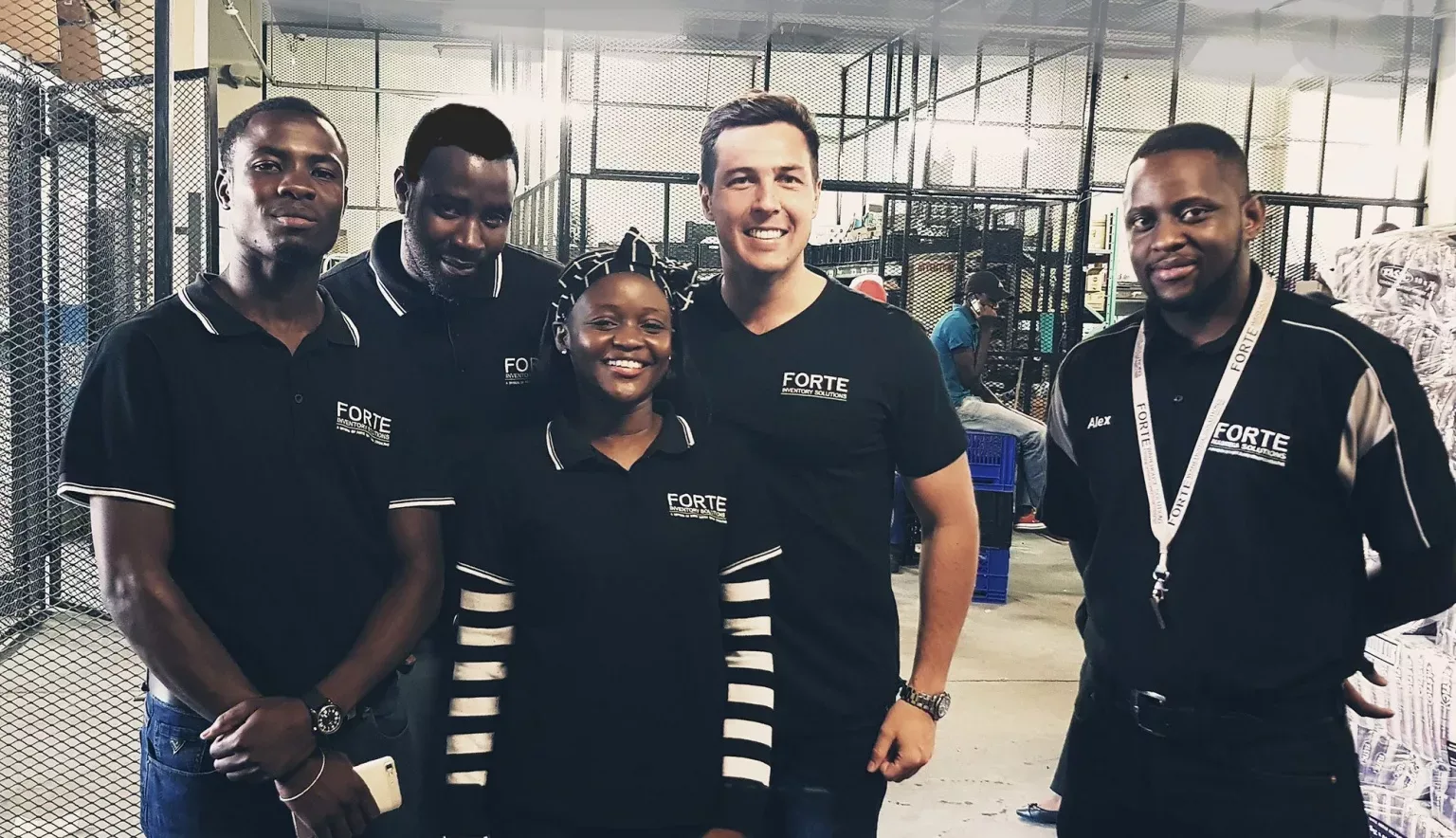By approaching software implementation and utilisation through an industry lens, Forte Supply Chain Consulting continues to tackle the practical issues faced by organisations through its esteemed network of technology partners.
THE DIGITAL COMPANION
Identifying a problem and delivering a solution is the cornerstone of entrepreneurialism.
Often born out of personal experiences, a staggering 100 million businesses are launched annually according to figures from the Global Entrepreneurship Monitor, around three every second.
For Renko Bergh, Chief Operating Officer of Forte Supply Chain Consulting, the eureka moment came during his first period of employment after majoring in logistics. Having already found a passion for the industry during his undergraduate studies at the University of Stellenbosch, he stumbled across a problem that bugged him – one which would transform his career.
“My employer at the time tasked me with the implementation of some transport management software, and this was my first true exposure to software applications,” Bergh recalls.
“My experience with implementation of the system, on behalf of my employer, was full of frustration and I soon realised that there was an opportunity to implement logistical software, but from an industry perspective.
“I have always enjoyed problem solving, and it was then that myself and my business partner founded Forte Supply Chain Consulting, with the vision to breach the gap between industry expectations and software developers within different sectors of the supply chain.”
Today the company operates through four independent divisions: Forte Data Solutions, Forte Transport Solutions, Forte Warehouse Solutions and Forte Inventory Solutions. Each caters to its own niche, the latter three working closely with carefully selected software developer partners to deliver bespoke solutions to clients.
And Bergh is in no doubt about the size of the opportunity, with industry beginning to exploit digitisation and the technologies deriving from the fourth industrial revolution.
“The logistics sector within Africa, including South Africa, has traditionally been late adopters of software,” he says. “Poor connectivity and lack of skill to deploy software have been reasons for this slow adoption, but the situation has changed in recent years and logistics companies understand that software is an enabler and fundamental to be competitive.
“Digitalisation is different for each company and varies on the level of complexity. However, without any digitisation, the ability to extract value out of data being captured daily, to make decisions, is very hard or impossible.”
THE INDUSTRY PERSPECTIVE
Where Forte comes in is through the approach it takes to software adoption.
Thanks to Bergh’s own background in the logistics sector, the company’s industry-centred modus operandi has provided it a crucial point of difference, a way of doing business which is supported by a cultural balance between people, process and systems.
“It is our opinion that software implementation can only truly be impactful if the balance between staff being trained exceptionally (people), the understanding of the desired outcome (process) and the best software (system) are achieved for a collective outcome,” the COO adds.
This is why Forte recruits from the industries it serves.
Opting to impart technical training onto sector experts as opposed to training software specialists in the nuances of supply chain (Forte Data Solutions being the exception), the company is able to stand in the shoes of its customers and identify with them at an operational level.
Further, the firm is reflecting this industry-first ethos in the form of its Learners Enrichment Achievers’ Program (LEAP).
Again, this is about breaching the divide between theory and industry, grounded in providing students the opportunity to experience the working world first-hand.
“Our observation is that young logistics graduates do not receive enough exposure into the different offerings and software services within the industry before selecting permanent employment,” explains Bergh. “We offer such exposure to graduates in an internship environment, with top talent receiving the opportunity to become permanent team members.”
Such industry-focussed expertise also enables Forte to steer conversations with its network of software partners which it sells, implements and provides aftersales support on behalf of.
“We want our software partners to work to their strength, which is development,” Bergh continues.
“It is a complete, full-circle integrated relationship. We gather in feedback from our commercial teams and send this onto our software partners, who will work with us to respond to our customers’ comments and observations. The clients are the ones who know their industry and what they need from their technology.
“Partnerships are the cornerstone of our business, and without these relationships Forte wouldn’t exist. It is also important to note that our in-house piece of software, FLOW, does not compete but rather complements the work of our partners.”
EXPANSIVE HORIZONS
Another important facet of Forte’s supplier network is that each of its partners cater to their own particular audience, thereby not existing in competition with one another.
FLOW, developed in-house by Forte Data Solutions, supplements this by providing an integration platform designed to create visibility across all software applications within different segments of the supply chain.
And it is through this that Bergh hopes to expand the company’s range of software solutions. The COO outlines ambitions to build more divisions in the future as part of the group’s wider mission, also known as its massive transformation purpose (MTP), which is to make supply chain software impactful.
He concludes: “I want Forte to be able to offer software within each main step of the supply chain, with software partners in each segment and the ability to integrate and create visibility across all software partners’ applications.
“For us the supply chain is extremely broad, from cradle to grave which is from production to delivery. Within that entire value chain, we want to be able to deliver software to each and every segment beyond what we do for transport, warehouse and inventory at the moment.
“For example, there is production, shipping, containers, manufacturing, yard management – all of these we envisage providing quality software through partners, companies who we must keep offering an attractive proposition to. The ultimate end goal is then to connect all of these solutions via FLOW.”































